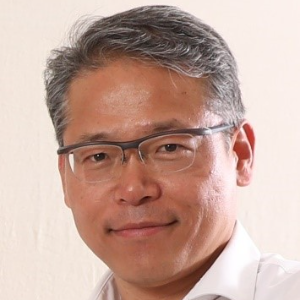Title : The effectiveness of a mobile application for early detection of Alzheimer’s disease using the Korean Dementia Screening Questionnaire
Abstract:
Background: Early detection of dementia is very important for improving the quality of life of patients and their families and providing appropriate medical interventions. The Korean Dementia Screening Questionnaire (KDSQ) was developed by Dong Won Yang et al. in 2002 and is used to screen for dementia and mild cognitive impairment in the elderly. KDSQ is a self-assessment questionnaire consisting of 25 items in 5 parts, each evaluating memory impairment, behavioral impairment, daily living impairment, vascular impairment, and depressive impairment. KDSQ showed excellent performance with a sensitivity of 79% and a specificity of 80% in a study of Koreans. In this study, we selected and investigated items related to Alzheimer's disease (AD) from the KDSQ questionnaire, and we developed a mobile application that allows users to self-assess AD more easily and quickly.
Methods: A mobile application was developed using a simple KDSQ that consists of 10 items related to Alzheimer's disease (AD) from the KDSQ. The application is embedded with a deep neural network (DNN) classifier that classifies users into normal and suspect groups and recommends hospital visits for suspects. To evaluate the effectiveness of the application, AD screening was conducted using the developed application for 939 elderly people at the Daedeok Senior Welfare Center (DSWC, Daejeon, South Korea) and 973 visitors at the Gyeonggi Provincial Medical Center Icheon Hospital (GPMC-IH, Gyeonggi, South Korea).
Results: The results showed that 14.9% of the elderly people at the DSWC and 36.2% of the visitors to the GPMC-IH were classified as suspected AD groups and recommended to visit the hospital. These rates of suspected AD groups were higher than the current dementia prevalence rate of 10% for Korean elderly people over the age of 65. In the case of the welfare center, the average age was 78.9 years old, so the suspected AD group was judged to be higher due to age factors. In the case of hospital visitors, the results were higher because they were the results of a survey of elderly people who suspected dementia and responded to the survey. Those who were classified as suspected AD groups were recommended to visit the hospital for additional treatment, and those who were classified as suspected AD groups among the Icheon Hospital visitors were linked to hospital treatment. Of the suspected AD group at Icheon Hospital, 40.9% received additional treatment from the hospital.
Conclusions: The sensitivity and specificity of the application can be calculated by medically confirming the dementia of people who received early dementia screening through this application. The rate of suspected AD groups judged in the application was higher than the current dementia prevalence rate of Korean elderly people, so the AD screening sensitivity of this application is expected to be high. Therefore, it is thought that this application can be used effectively as a tool for early self-administered AD screening. In conclusion, we have developed a mobile application that can check AD early through a simple KDSQ self-questionnaire, guides hospital visits for suspected AD groups, and provides dementia management and prevention education content. This application is expected to be useful for early diagnosis of dementia. In the future, we will study additionally to calculate the sensitivity and specificity of dementia screening using the mobile application and to evaluate its effectiveness. This study was supported by the Korea Ministry of SMEs and Startups (S3046273).
Audience Take Away
- Self-AD early screening method using a mobile application
- The AI classification of dementia severe level using KDSQ items
- How to present services to users in a dementia early screening application


